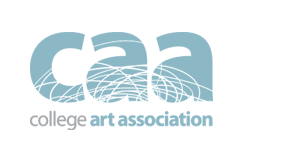Dates: 15-18 February 2017
Location: New York City, USA
Website: CAA 2017
Deadline for submissions: 30 August 2016
We are pleased to direct your attention to a panel theme welcoming submissions from design historians and related fields: Critical Collaborations: Neutralizing Power in Art and Design History.
Chairs: Sabrina Rahman, University of Exeter; Maya Oppenheimer, Royal College of Art; Elli Michaela Young, University of Brighton
Current work in design history focuses on strengthening inter- and trans-national networks. This comes after decades attempting to define what histories of design can tell us about socio-historical contexts and those who engage with designed objects, systems and spaces. With cultural and educational institutions also attempting to launch reflexive and critical discourses that critique, de-colonize and pursue post-colonial narratives and mandates, what do these changes look like after and underneath this discourse?
Power often manifests as a uni-directional flow of narrative within and across these producers, including institutions and those that operate within them: researchers, curators, educators, artists and designers. This panel considers the role and potential for collaboration as a method of neutralizing these power structures. The term collaboration provides a specific platform for thinking about structural, methodological and experiential exchanges in an effort to move away from power laden vocabularies and timelines. The above question becomes: What does the implementation of critical collaborations that neutralize power look like?
We welcome submissions that look to histories of art and design collaboration that confront and disarm power structures, be they institutional, research methods-based, or material. This panel aims to foster a dynamic discussion that will address projects that focus on histories of collaboration and engagement practices. Contributions focusing on non-Western contexts will be favored to consider not what history or design mean in various constituencies, but what present collaboration across geographies can afford the intellectual, social and cultural aspects of art and design.
Potential Subject Areas: 1) Art History-Decorative Arts/Textiles/ Design History; 2) Interdisciplinary-Museum Studies/Curatorial Studies/Art Criticism; 3) Interdisciplinary-Studio Art & Art History
Deadline for submission: 30 August 2016
Full call for papers and submission information: http://bit.ly/29orooj.
Location: New York City, USA
Website: CAA 2017
Deadline for submissions: 30 August 2016
We are pleased to direct your attention to a panel theme welcoming submissions from design historians and related fields: Critical Collaborations: Neutralizing Power in Art and Design History.
Chairs: Sabrina Rahman, University of Exeter; Maya Oppenheimer, Royal College of Art; Elli Michaela Young, University of Brighton
Current work in design history focuses on strengthening inter- and trans-national networks. This comes after decades attempting to define what histories of design can tell us about socio-historical contexts and those who engage with designed objects, systems and spaces. With cultural and educational institutions also attempting to launch reflexive and critical discourses that critique, de-colonize and pursue post-colonial narratives and mandates, what do these changes look like after and underneath this discourse?
Power often manifests as a uni-directional flow of narrative within and across these producers, including institutions and those that operate within them: researchers, curators, educators, artists and designers. This panel considers the role and potential for collaboration as a method of neutralizing these power structures. The term collaboration provides a specific platform for thinking about structural, methodological and experiential exchanges in an effort to move away from power laden vocabularies and timelines. The above question becomes: What does the implementation of critical collaborations that neutralize power look like?
We welcome submissions that look to histories of art and design collaboration that confront and disarm power structures, be they institutional, research methods-based, or material. This panel aims to foster a dynamic discussion that will address projects that focus on histories of collaboration and engagement practices. Contributions focusing on non-Western contexts will be favored to consider not what history or design mean in various constituencies, but what present collaboration across geographies can afford the intellectual, social and cultural aspects of art and design.
Potential Subject Areas: 1) Art History-Decorative Arts/Textiles/ Design History; 2) Interdisciplinary-Museum Studies/Curatorial Studies/Art Criticism; 3) Interdisciplinary-Studio Art & Art History
Deadline for submission: 30 August 2016
Full call for papers and submission information: http://bit.ly/29orooj.










COMMENTS